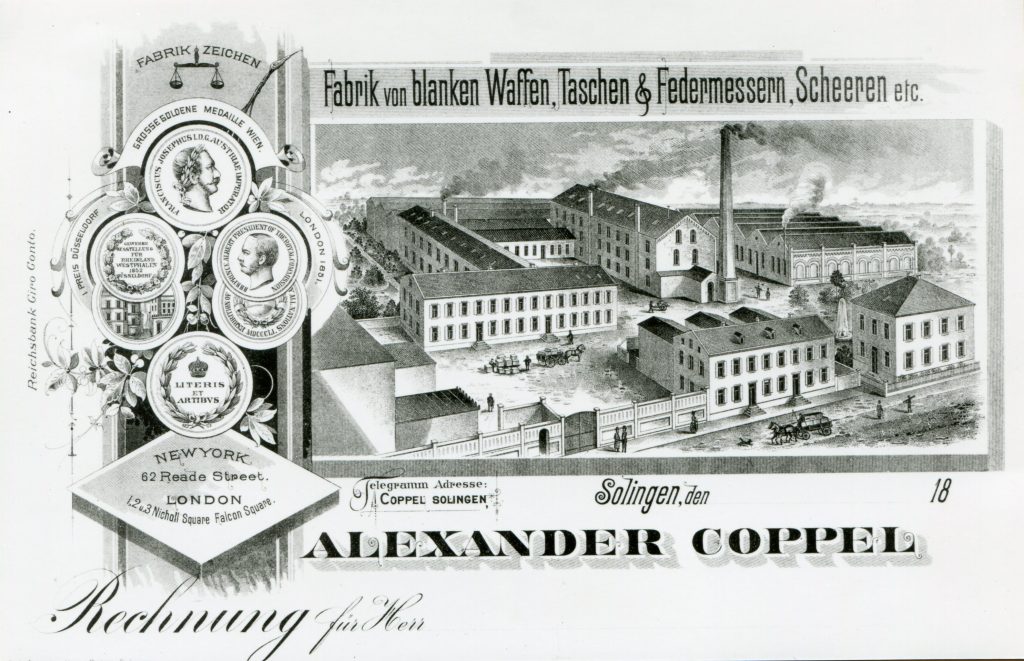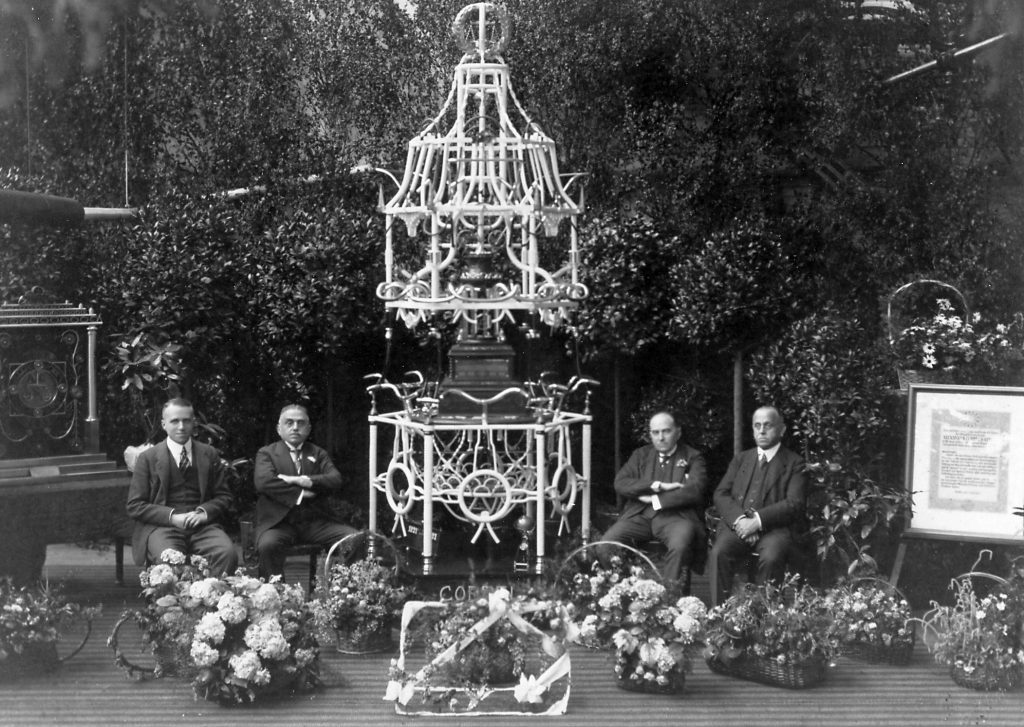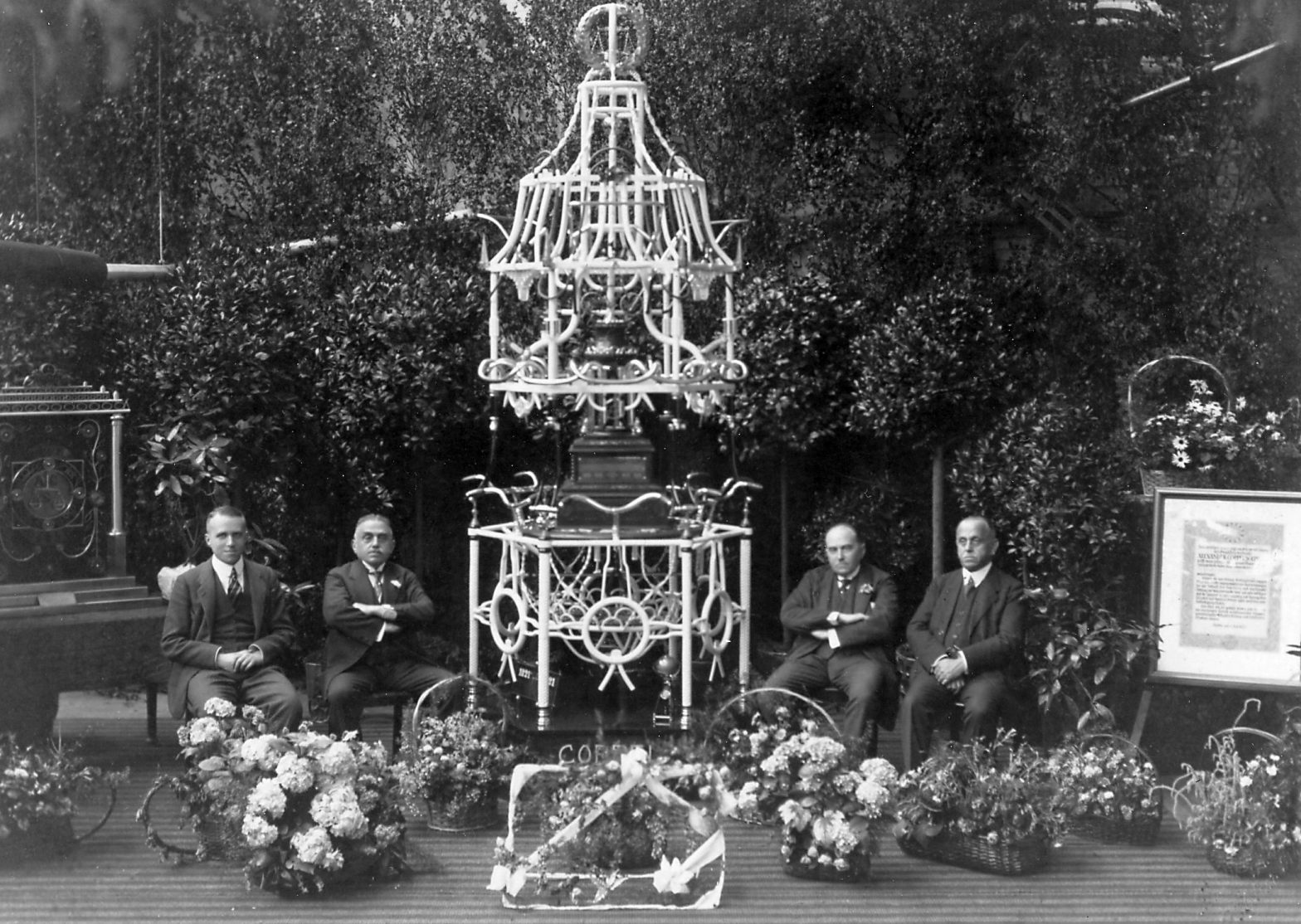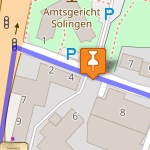Stop 3: The Alcoso company
Malteserstraße 6 – go to map – go to starting point
The Alexander Coppel Solingen company, founded in 1821, was located on this site between today’s Malteserstraße and Werwolf. It was founded by Alexander Coppel’s grandfather of the same name.
In 1853, his son, Gustav Coppel, then 23 years old, joined his father’s business. Besides steel goods, the company also produced weapons. This meant that the company belonged to the most important sectors of Solingen’s industry. In 1862, the company was considered to be the third largest in the city. Until the First World War, it was in a “sales association” of five Solingen arms manufacturers who sold their products worldwide. From the turn of the century, the company also made seamless tubes, at first only for bicycles. Around 1898, an additional production facility was established in Hilden, where cold-drawn precision steel tubing was manufactured for the first time. Such tubing became known around the world as “Coppelrohr”. In 1912, the company employed 380 people.

Gustav Coppel was involved in many functions in the city of Solingen. Among other things, he was president of the chamber of commerce, chairman of the supervisory board of the Siegen-Solinger Gussstahl-Aktien-Verein (a steel plant), chairman of the Scherenfabrikantenverein (an association of scissor manufacturers) and chairman of the Chamber of Arbitration for the scissors industry. He was held in high esteem, not only by many of his fellow entrepreneurs, but, above all, by the working class, as he supported conflict resolution in partnership and cooperation with the trade unions in the Solingen cutlery industry. This was an attitude that was increasingly opposed by the “hardliners” among the industrialists before the First World War.
As successful industrialists, the grandson of the company founder, Alexander Coppel, and his brother, Carl Gustav Coppel, led the company safely through the world war and the period of hyperinflation. The “Alexander Coppel Solingen” company produced typical Solingen small ironware; it was a company with a worldwide reputation. They marked the company’s 100th anniversary in 1921 by giving away two million marks in the form of various donations and endowments.

In 1936, the Coppel company was “Aryanized”. On 1 March, the Hilden plant was merged with Kronprinz-AG and renamed “Röhrenwerke Coppel G.m.b.H.”. The expropriated Jewish business owners provided another 50,000 marks for the former workforce through their foundation: the “Carl Gustav und Dr Alexander Coppel-Stiftung”. In April 1936, the entire Alexander Coppel company was converted into a corporation, and Alexander and Carl Gustav Coppel were thus finally forced out of business.
We are standing here in front of the company building of the still existing ALCOSO company. Its name consists of the first two letters of the names Alexander Coppel Solingen. ALCOSO advertises on its website with the year of foundation – 1821 – and a portrait of Alexander Coppel. The website states:
“The founder of the ALCOSO company, Alexander Coppel, Solingen was of Jewish descent. As a result, the owners were forced to sell ALCOSO at a ridiculous price during the Nazi era; and after the Second World War, compensation was paid out in the form of additional payments to the surviving dependents. The cold weapons were removed from the assortment and the company focused once again on its regular range. Hair clippers played an increasingly important role and dominated the business.”
After insolvency and a change of ownership, ALCOSO now mainly produces tools in the animal care sector and exports them to more than 80 countries worldwide.
After comparing the site with historical maps, it is very likely that parts of the former production plant of the old Alexander Coppel company have been preserved in this place until today.

